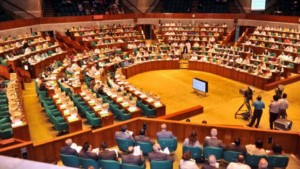by John Weeks on 11th May 2020 @johnweeks41
With ‘coronabonds’ stymied, an exit from the crisis had depended on ECB monetary operations—until the German constitutional court weighed in.
On May 5th the German constitutional court issued a ruling likely to redefine fundamentally the future of the European Union. In one relatively brief decision, the court struck a double blow. It asserted the power of itself, a national institution, to overrule the European Court of Justice on an EU-level issue, and it denied the political independence of the European Central Bank.
Legal experts will debate the implications. Whatever the outcome of that, the ruling marked the end of two pretences which for at least a decade had guided the political strategy of the Socialists and Democrats group at the European level.
The first was the conviction that there existed a coalition with the centre-right European Peoples’ Party for greater EU integration within a progressive framework. That conviction was closely related to a second—that concessions by the centre-left on fiscal rules would gain proportionate concessions from the centre-right on social protection.
A concrete example of these pretensions was the acceptance in late 2017 by the S&D group of the adoption of the Treaty on Stability, Co-operation and Governance, in exchange for a European Pillar of Social Rights. This hoped-for quid pro quo epitomised the fruitless concessions sought by the centre-left.
In December 2017 the European Commission successfully enshrined the TSCG via the European Parliament in EU law. Nearly three years later it has become a central plank in enforcing EU fiscal austerity, while the ‘social pillar’ remains a declaration of 20 principles with no enforcement status.
Longstanding opposition
While the German constitutional court operates independently of the federal government, the recent decision by the former sets limits to the decisions the latter can make. These bind all the more because the decision affirms the longstanding opposition of the Bundesbank to ECB monetary-expansion programmes—the appropriateness of which the ruling explicitly mandates the Bundesbank to assess.
This and other parts of the decision show the de facto meaning of European integration, ‘more Europe’, to the EU centre-right—stricter fiscal austerity for member states with no compensating solidarity to fund the growing health crisis or finance the recovery programme that must follow.
The German government reproduces at the national level the centrist conciliation in European politics and has made clear its opposition to an enlarged EU budget. Now the German constitutional court has cast doubt on the legality of the fallback plan for ECB monetary expansion.
The end of pretensions of a centrist compromise to achieve EU solidarity comes as the European Commission warns that the human and financial burden of the coronavirus crisis could undermine the stability of the euro. To the extent that this possibility concerns the German government and its northern-European allies, one assumes that fiscal austerity would represent its recommended remedial action.
Dilemma clarified
If nothing else, the court decision has clarified the dilemma facing European progressives. The EU treaties represent the fundamental obstacle to collective action to deal with the coronavirus crisis. Progressives find themselves members of a ‘club’ whose rules prohibit effective policies to manage the crisis in which the EU finds itself.
Methods to confront this dilemma fall into three categories, increasingly radical in nature: 1) devise schemes to bypass treaty rules, 2) take measures which openly challenge the treaties or 3) break with the EU. I exclude the last since it would create for any such government unmanageable short-term problems exactly when a solution is needed.
Finding a sustainable way to fund the costs of the coronavirus crisis at the national level represents the immediate problem blocked by treaty arrangements. The European Council has made it clear that a substantial majority of heads of government will not support any form of EU-wide financing of national expenditure, and the German court decision blocks a second-best financing scheme from the ECB. The issue becomes whether there exists a method of financing which bypasses both obstacles.
‘Coalition of the willing’
A ‘coalition of the willing’ is one proposal under discussion by European progressives. This derives from the nine governments which in the European Council meeting in March supported the creation of EU-wide ‘coronabonds’. These governments, including those of the large eurozone countries other than Germany (France, Italy and Spain) would as a group create a common debt instrument available to the nine and any others which might subsequently join.
The plan has a clear motivation—that bonds issued by a group of governments through a special-purpose institution would be less likely to fall prey to financial-market speculation than bonds issues by one government. This represents the core of the problem: the current ECB interest rate makes debt service manageable to almost any practical limit but speculation would quickly make borrowing fiscally unsustainable.
However, because this coalition would include the governments of the most indebted EU countries, it is not assured that even in concert their bonds would escape debilitating speculation. The ratios of debt to gross domestic product for France and Spain stand close to 100 per cent and for Italy at over 130 per cent. Without the ECB as a back-up purchaser, the coalition bonds might well suffer speculation, creating an unstable collective bond in place of national ones.
Further, it is likely that some governments of the other EU countries would press the European Commission to block the coalition bonds, which would almost certainly be ruled in conflict with treaty provisions.
The coalition governments could avoid the speculation problem by allowing their governments to purchase the bonds directly. The governments or their central banks would become purchasers of last resort, stepping in immediately when upward pressure on interest rates manifested itself.
This would however flagrantly violate the treaties. The coalition governments would quickly face sanctions, provoking an EU constitutional crisis.
EU impasse
The European Council is well-known for its tendency to generate unexpected compromises. We cannot rule out one allowing some sub-group of governments to embark on a joint financing scheme or a change of heart by the ‘frugal four’.
But the constitutional court decision suggests little room for such a compromise in the German political context. The EU governments encounter an impasse. Several find themselves in desperate need of substantial deficit finance. The German court has however blocked ECB funding, leaving only the European Stability Mechanism—unacceptable to the Italian government and perhaps the Spanish.
Pretence is over and the reality of austerity has reasserted itself in the coronavirus context.
(John Weeks is co-ordinator of the London-based Progressive Economy Forum and professor emeritus of the School of Oriental and African Studies.)




